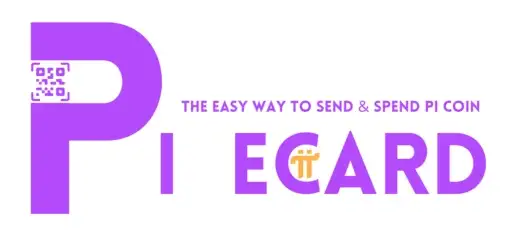
Security News
Risky Biz Podcast: Making Reachability Analysis Work in Real-World Codebases
This episode explores the hard problem of reachability analysis, from static analysis limits to handling dynamic languages and massive dependency trees.
@decentapps/piecard
Advanced tools
Official npm package of PieCard, Pi eCard is the easy POS (Point of Sale) system for the Pi Network, enabling in-person vendors and Pioneers to invoice others without the need to type in long public keys. The status of the payment can be seen at any stage

Pi eCard is the easy POS (Point of Sale) system for the Pi Network, enabling in-person vendors and Pioneers to invoice others without the need to type in long public keys. The status of the payment can be seen at any stage by both the vendor and the client for pi network.
Your API requests are authenticated using API keys. Any request that doesn't include an API key will return an error.
You can get your API keys in your dashboard at any time, visit developers to generate or get your keys.
See an example of how to use our package
const { PieCard } = require('@decentapps/piecard')
// Initialization
const piecard = new PieCard("Client_ID", "Client_Secret", "Access_Token");
// CREATE PAYMENT
const paymentData = {
amount: NUMBER, // amount of service >= 0
memo: STRING, // memo of the transaction
metadata: OBJECT // key-value pairs of metadata
};
piecard
.createPayment(paymentData)
.then((result) => {
console.log("Create payment response : ", result);
})
.catch((err) => {
console.log("Response error : ", err);
});
// GET PAYMENT BY ID
const paymentId = STRING // 63e064aebc26563e677a9ae1
piecard
.getPaymentById(paymentId)
.then((result) => {
console.log("Get payment : ", result);
})
.catch((err) => {
console.log("Get payment error : ", err);
});
// SEND PI FROM APP TO USER (APP-TO-USER TRANSACTION)
const appToUserData = {
amount: NUMBER, // Will be deducted from your wallet, plus the 0.02 Pi fee
recipient: STRING, // Either Pi Username OR Wallet Address
wallet_public_key: STRING, // Your Mainnet wallet address
wallet_secret_key: STRING, // We will never see or store this
memo: STRING, // Optional - this will appear on the blockchain
};
piecard
.makePaymentToUser(appToUserData)
.then((response) => {
console.log("Pi Payment response : ", response);
})
.catch((err) => console.log("Sending pi to user error : ", err));
// GET A SECURE PAYMENT PAYLOAD
const encryptedData = STRING;
piecard
._decryptPayment(encryptedData)
.then((result) => {
console.log("Decrypted Payment response : ", result);
})
.catch((err) => {
console.log("Decrypting Payment error : ", err);
});
This is a Node.js module available through the npm registry.
Before installing, download and install Node.js. Node.js 0.10 or higher is required.
If this is a brand new project, make sure to create a package.json first with
the npm init command.
Installation is done using the
npm install command:
$ npm install @decentapps/piecard
Follow our installing guide for more information.
The PieCard project welcomes all constructive contributions. Contributions take many forms, from code for bug fixes and enhancements, to additions and fixes to documentation, additional tests, trigging incoming pull requests and issues, and more!
See the Contributing Guide for more technical details on contributing.
If you discover a security vulnerability in PieCard, please see Security Policies and Procedures.
To run the test suite, first install the dependencies, then run npm test:
$ npm install
$ npm test
The original author of PieCard is Duniya Naphtali
The current lead maintainers are Oliver Crockett and Duniya Naphtali
FAQs
Official npm package of PieCard, Pi eCard is the easy POS (Point of Sale) system for the Pi Network, enabling in-person vendors and Pioneers to invoice others without the need to type in long public keys. The status of the payment can be seen at any stage
The npm package @decentapps/piecard receives a total of 0 weekly downloads. As such, @decentapps/piecard popularity was classified as not popular.
We found that @decentapps/piecard demonstrated a not healthy version release cadence and project activity because the last version was released a year ago. It has 2 open source maintainers collaborating on the project.
Did you know?

Socket for GitHub automatically highlights issues in each pull request and monitors the health of all your open source dependencies. Discover the contents of your packages and block harmful activity before you install or update your dependencies.

Security News
This episode explores the hard problem of reachability analysis, from static analysis limits to handling dynamic languages and massive dependency trees.

Security News
/Research
Malicious Nx npm versions stole secrets and wallet info using AI CLI tools; Socket’s AI scanner detected the supply chain attack and flagged the malware.

Security News
CISA’s 2025 draft SBOM guidance adds new fields like hashes, licenses, and tool metadata to make software inventories more actionable.